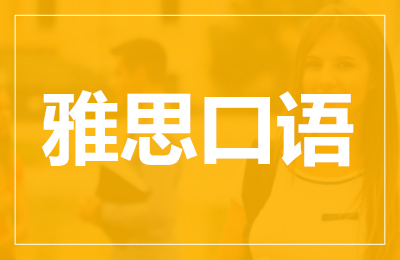
今天选择为大家讲解的是目前高频排名第14的话题《向长者学习的技能》。
Describe a skill that you learnt from an older person
You should say:
What the skill is
Who you learnt it from
How you learnt it
And explain how you feel about it
说实话,技能类的话题我之前专门有写过,可只要雅思官方在"skill"后面加了些定语之后,很多学生又开始束手无策,比如,这题中的"learnt from an older person"。
为什么呢?
第一很多同学会纠结"older person"的年龄界限,认为必须是一个老年人才行,或者一个看似年轻人拥有的技能不太可能是老年人教的。
我觉得这样的纠结毫无意义。
1. 任何一个比你年纪大的人都可以是"older person"。并且这个人可以是老师,也可以是你的家人,比如,你的哥哥姐姐叔叔阿姨等。
2. 年长的人能教的技能并不局限于"织毛衣、种地等",那些看似年轻化的技能,他们依旧可以。比如:苏翊鸣的日本教练佐藤先生(47岁)

那么具体的"skill"又有哪些选择呢?如何才能从"swimming/cooking/driving"中解脱出来,给出不一样的回答?
和生活相关的技能
生存/生活技能
生活中的每一个步骤都是一个技能,比如:camping 野营/ do laundry 洗衣服/ do the room 打扫房间/ make the bed 整理床铺等
2. 休闲娱乐技能
和艺术/运动等相关的皆可,比如:calligraphy 书法/ flower arranging 插花/ painting 画画/ dancing 跳舞/snowboarding 单板滑雪/ figure skating 花样滑冰/ running 跑步等。
和工作/学习相关的技能
任何一份工作都是一项技能。我作为一名老师,对应的就是teaching skill; 程序员对应的就是programming。
同理,任何一门你所学习的科目也是技能。比如:你现在上的雅思课对应"听说读写"四个技能;同时,语言本身也是一个技能。
除此之外,你还可以思考一些学习/工作中需要用到的辅助技能。比如:time management 时间管理技能/ video editing 视频剪辑技能/ Excel等各类软件使用技能。
简而言之,你会做的/能做的任何一件事都是一项技能。哪怕烧个米饭都是技能!所以别把skill太当一回事!!
明确以上两点后,我们就从小问题本身着手来明确下它们的细节拓展方向,这也是很多同学目前最大的问题。
01
What the skill is
此小问的拓展只需从技能类的维度中挑选适合的即可,我重点推荐以下四个维度:
Popularity 受欢迎程度
记住,当你实在不知道一个话题的第一小问该拓展什么时候,"popularity"是你最佳的选择。你可以简单介绍,它为什么受欢迎以及它怎样的受欢迎。除此之外,你也可以按时间线来说明其受欢迎程度的变化趋势,比如:从不受欢迎到受欢迎,以及其原因。
Example: A skill that comes to mind is snowboarding, which used to be less popular in my country, as we don't have much snow. But this year, with the opening of the Beijing winter Olympic Games and the fact that Chinese athletes are excelling in 擅长 this sport, it is taking off 正在逐渐受欢迎. Lots of young people are intrigued 被吸引 and keen to try it, including myself.
Image
How to learn 如何学
提及我们如何学一样东西,无非"自学+别人教"。
既然此话题的第二小问涉及"别人教"这个板块,我们就可以在第一小问拓展"自学"的过程,比如通过怎样的方式自学?自学效果如何?存在怎样的问题从而导致需要有人教?
个人认为,从这个角度着手,可以很好的从第一小问过度到第二小问
Example:
A skill that comes to mind is English academic writing skills. As my school doesn’t run a course for this, I learnt it by myself at first. I followed lots of tutorials 教程 online which were mainly posted by excellent students studying in top notch 一流的 universities like Cambridge and Oxford. Even though they gave me so many great ideas, it wasn’t really enough and I felt I needed a different approach. A friend of mine suggested hiring a private tutor.
Easy or Difficult 简单还是难
"Easy or difficult"也是"skill"类型话题里常出现的一个小问题。我们在思考过程中,可以按"主次"或"时间线"进行答题。
-主次:绝大多数人认为(简单/难)-why/小部分人认为(简单/难)-why
-时间线:最开始我认为/后来我认为
此处需要用到有关"easy"/"difficult"的替换词:
-Easy:It's not rocket science/ It's a walk in the park/ It's a piece of cake etc.
-Difficult: Tough/ challenging etc.
Example:
A skill that comes to mind is time management. It isn’t rocket science 简单 for self-disciplined 自律的 people. However, for me, a procrastinator 拖延症患者, it’s a challenge to manage my time well. Because of this, I decided to learn some techniques.
How you know about it 你怎么知道的
鉴于此话题没有出现该小问,我们便可将其作为维度用于第一小问的拓展。任何一个skill都会有一个具体的认知过程,为此,我们可以将细节展开来:
step one: 最开始怎么知道的(谁告知的?从某处得知的?在某个时间段获悉的?)
step two: 最开始的印象(了解到哪些内容以及这些内容是否让你产生想要进一步了解的兴趣?)
step three: 若感兴趣,最终就决定去学习它。
Example: A skill that comes to mind is programming. The first time I heard about it was in my high school. I had a programming course but I wasn’t really keen at that time. However, As i got older I became very tech-savvy and showed great interest in coding and developing new software, so I really wanted to learn it in more detail.
02
Who you learnt it from
此问的拓展多数同学都比较局限。我们有两个基础的拓展方向:
1. 从人着手
我们可以从人的维度里选择适合的来拓展细节,比如:职业/爱好/教育背景/年龄等。但你所选择的内容需要最终跟这些运动有所关联性。
比如:我哥哥教我滑雪。虽然他是个会计,但他非常狂热于滑雪,从4岁开始滑雪,并参加过很多比赛,拿过很多名次。也正是如此,他教我绰绰有余。
2. 从5W1H着手
"5w1h"包括:when/where/who/why/what/how/ how much/ how often/how long
我们也可以从这些角度出发来拓展细节,比如:他什么时候教你/在哪里教你/他和谁一起教你/为什么决定教你/你需要付多少学费/教你的频率如何等
Example one:
I followed in my cousin’s footsteps 跟随某人的脚步. Even though he is an accountant, he has a great passion for snowboarding and started learning it when he was only 10. In recent years, he has won several medals in domestic competitions. Because of this, I thought he was a great person to teach me.
However, he had a very hectic 繁忙的 work schedule, he could only teach me on the weekends. We usually got up at the crack of dawn 早起 and went to the slopes (山谷或山丘)的斜坡. Even though it is a bit far from where we live, the professional facilities, such as ramps 坡道 and jumps, offered us a great platform to learn.
03
How you learnt it
"How you learnt it"等同于"How the person taught you"。为此,你可以还原到你参加过的任何一门课程中,想想老师的课程内容都是怎么在安排的?
① 技巧+练习
这应该是最基本的一条路线,包括我自己的课程也是一样。每节课讲一两个技巧点,再配合课堂练习。
我们在答题时,若想把细节丰满。我们可以进一步思考,老师如何在讲解技巧点?一步步拆分并演示?用案例的方式来说明?
练习过程中,老师又会干些什么?以及练习给你带来的好处有哪些?
Example:
Our classes were always very productive 搞笑的. Each class, he spent about 20 mins teaching me new tricks 技巧, usually from simple to difficult. He taught me step by step and told me what to avoid when doing the moves so I wouldn't get hurt. After learning the new tricks, I practiced. He then pointed out all the mistakes I made and gave me advice and tips to improve.
② 课堂内容+阶段性测试
虽然任何一门课的课堂安排都是"技巧+练习",但有些课程里老师也会安排阶段性测试,比如:考试/比赛/小组报告等。
比如,我的一个学生上了学校里的皮划艇课,他的老师就会每个月组织一次皮划艇比赛。虽然他之前都没有拿第一,但最终通过一个学期的练习在最终一次比赛中突破了自我。
Example:
He usually taught us new tricks in the classes like how to turn around and how to jump high. He demonstrated 演示 the new tricks for me again and again until I got the hang of 掌握...的技巧 them and then I tried them myself. Every month, he would also organize some small competitions and I needed to compete with his other students. I usually lost but finally in my last competition, I won first place 第一名 and I was over the moon 欣喜若狂. 最后更多详情咨询老师即可~

